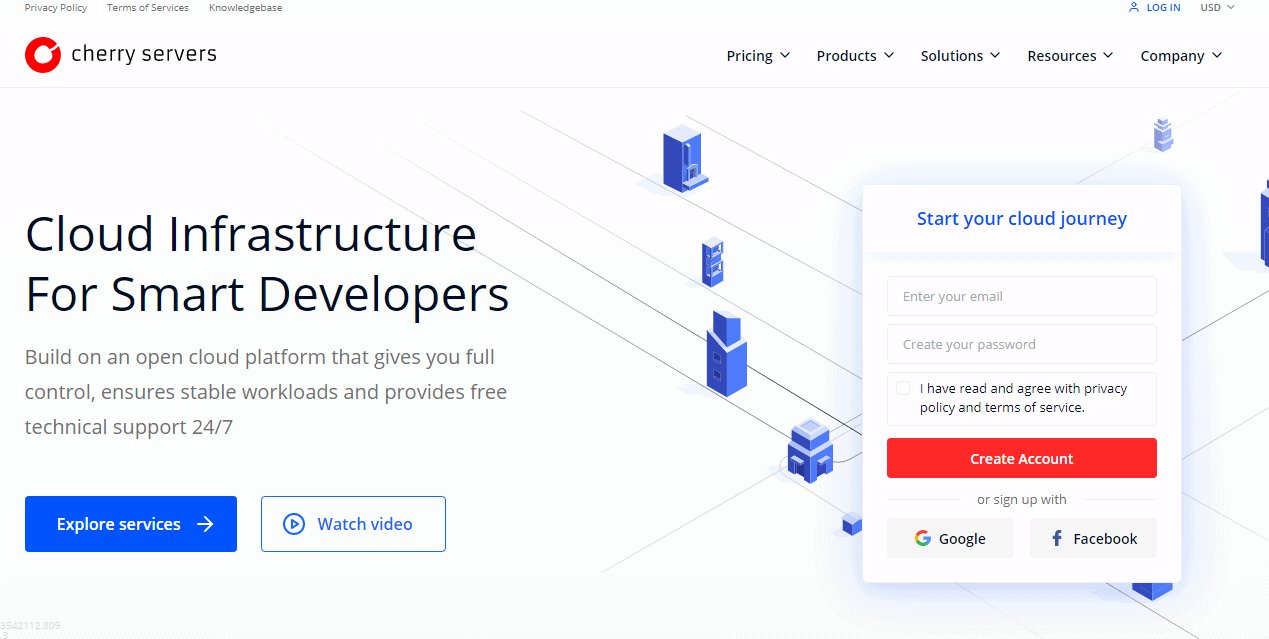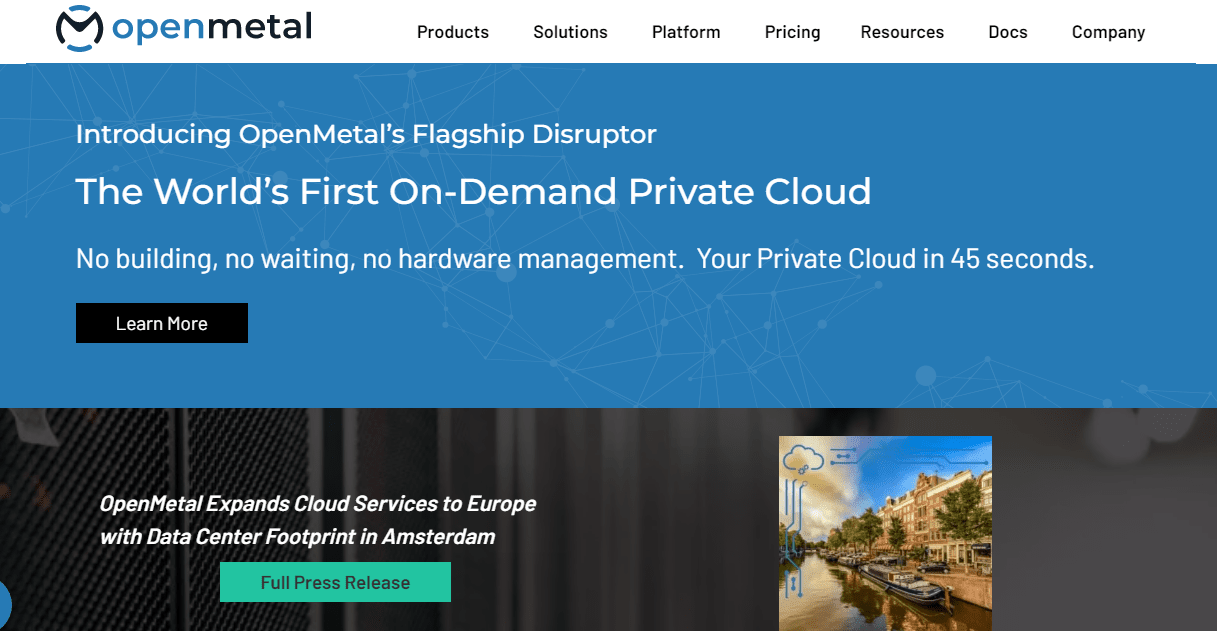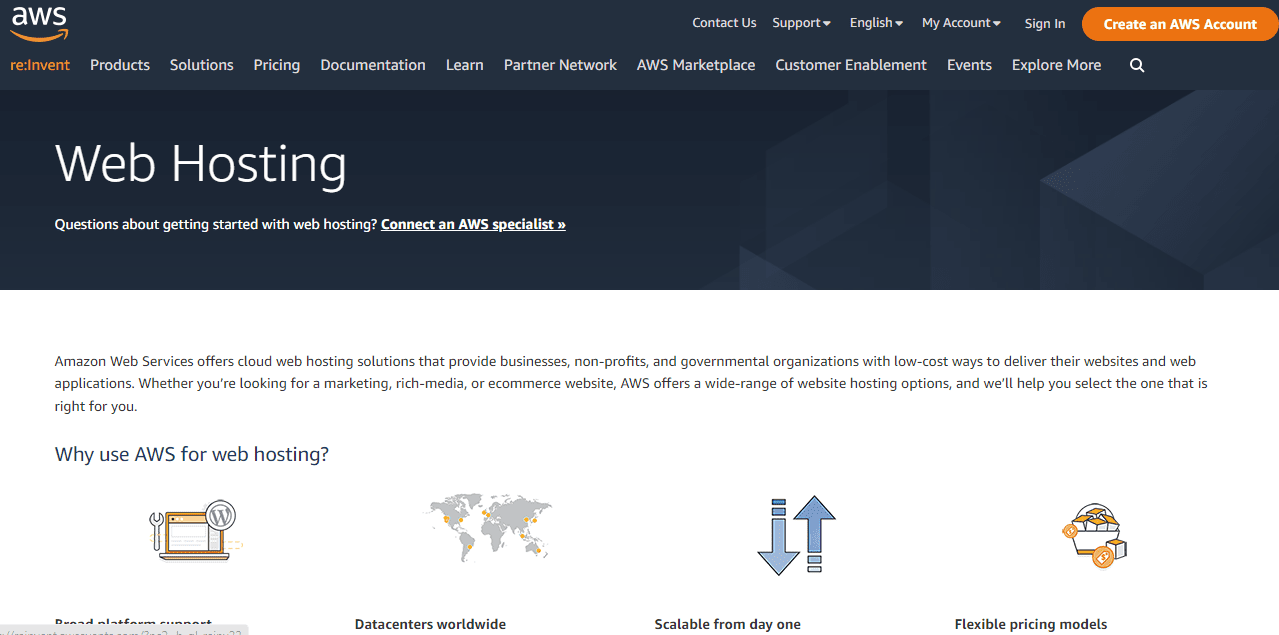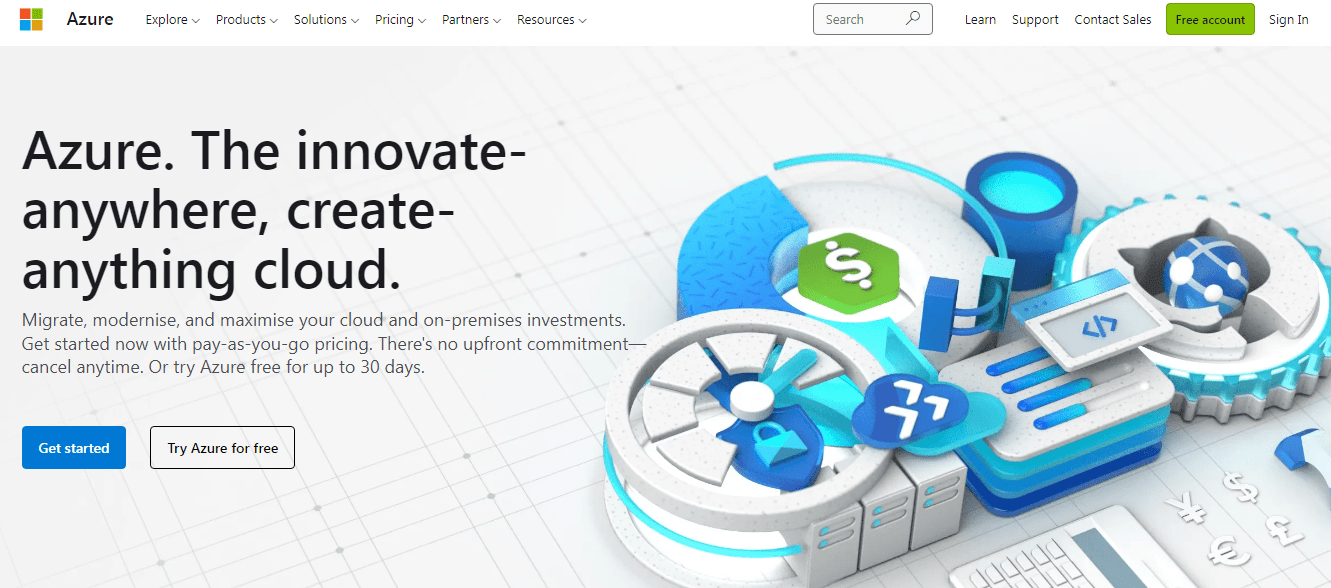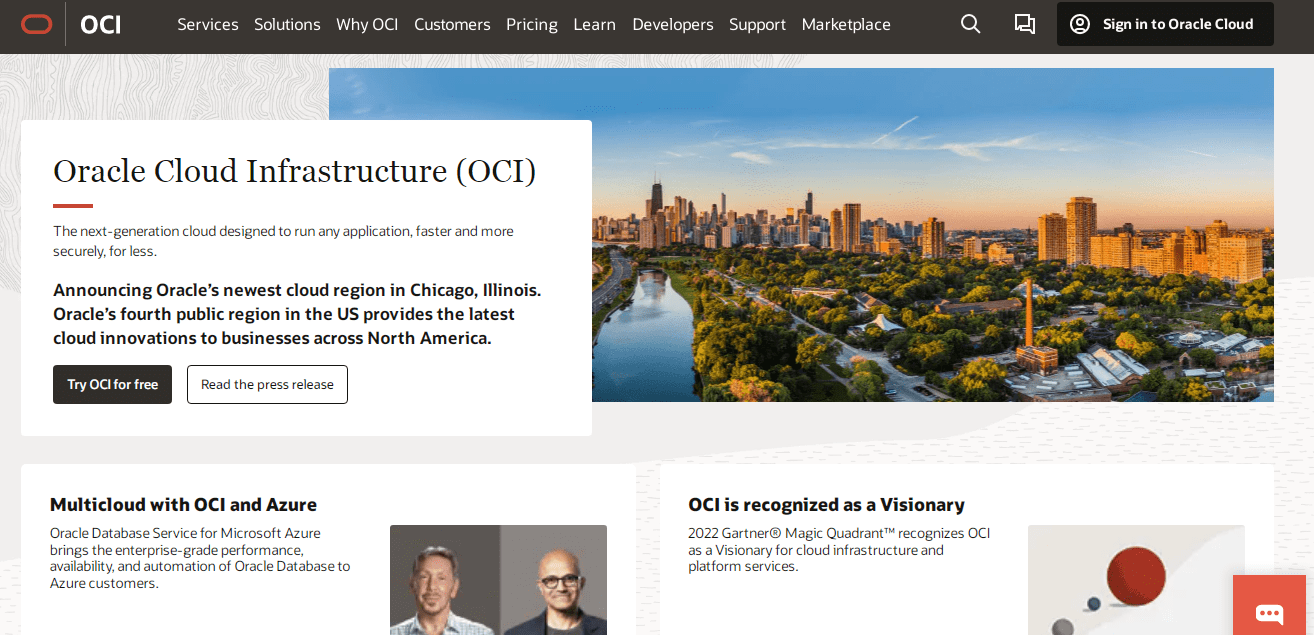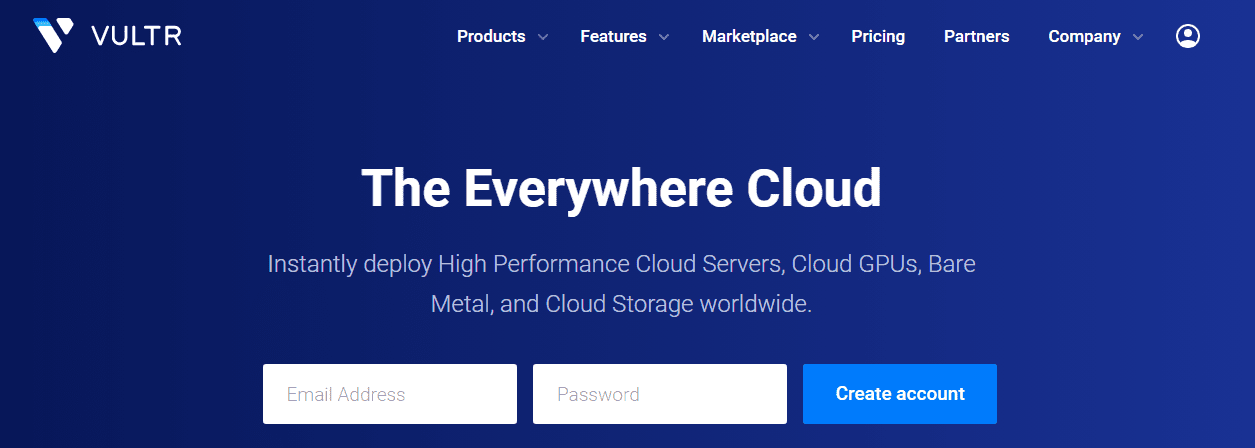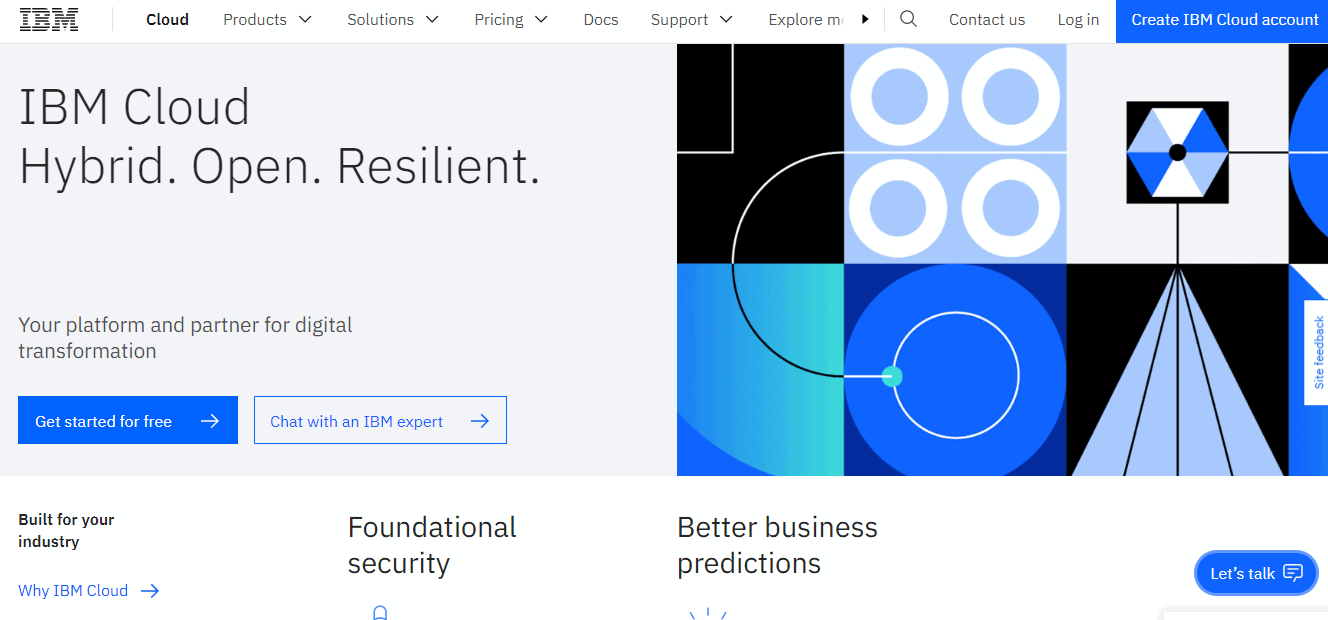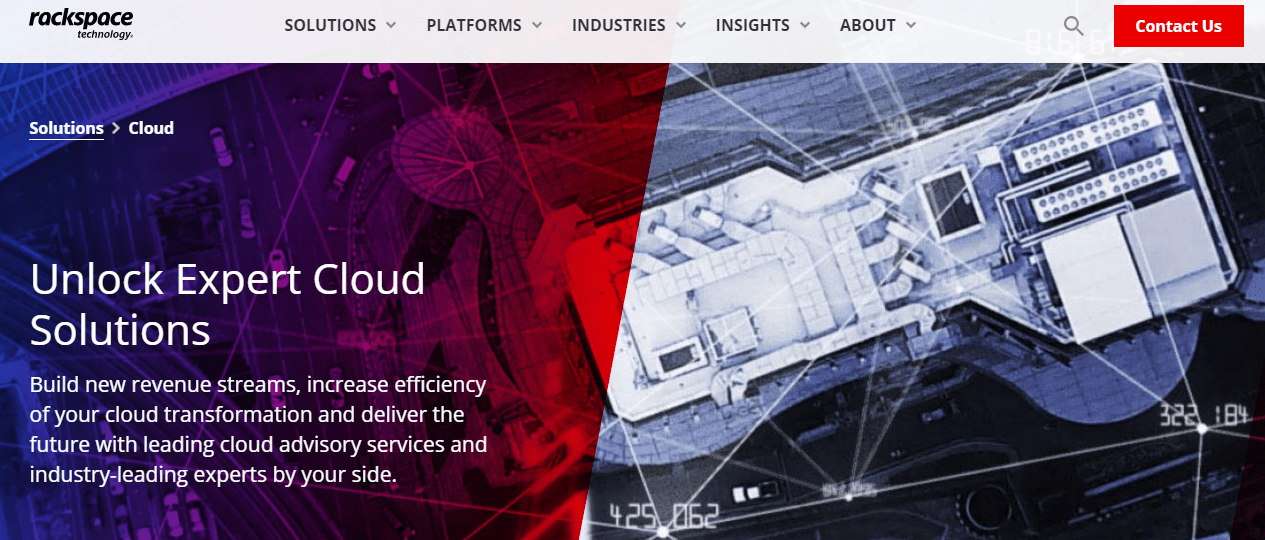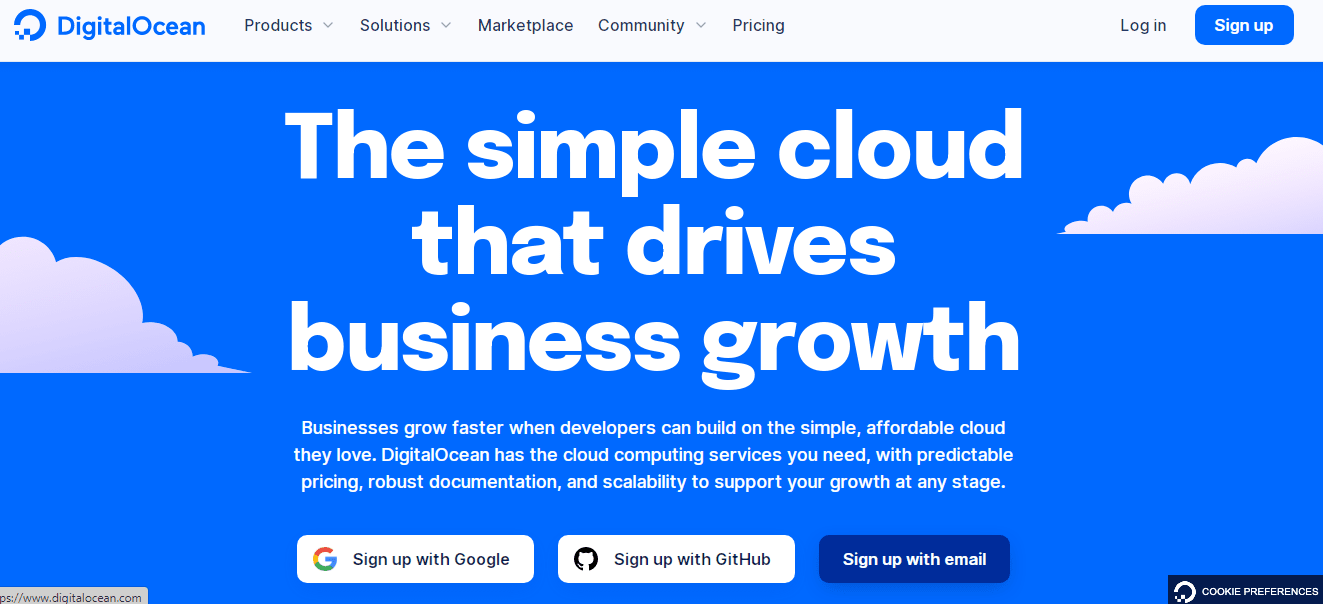From cloud-hosted storage and computing capacity to network infrastructure, Infrastructure Software as a Service (IaaS) offers businesses significant scalability and cost savings compared to traditional in-house systems.
But with so many options on the market, how do you pick the best IaaS services for your business needs?
In this post we’ll identify 10 of the top Infrastructure Software as a Service (IaaS) providers and share use cases that demonstrate how each can help your company save money, scale resources painlessly, or reduce IT overhead.
7+ Infrastructure Software as a Service Examples 2026:
-
Cherry Servers
Cherry Servers is a cloud hosting provider and Infrastructure as a Service (IaaS) provider that offers high-performance cloud services and enterprise-level server solutions to businesses, software companies, and organizations.
Founded in 2001, Cherry Servers has since grown to become one of the leading providers in this field.
With its full range of infrastructure support, it provides a reliable platform for users to quickly deploy their web applications.
For those wishing to get started with SaaS, Cherry Servers is an ideal choice. The company offers both shared and dedicated hosting options, allowing users to choose the best fit for their business needs.
Their servers are located in multiple data centers across Europe and Asia, ensuring optimal performance no matter where your customers are located.
In addition, all of their servers come equipped with state-of-the-art hardware and software features that are designed to deliver maximum uptime.
This means that there will be very little downtime due to technical issues or maintenance windows.
In terms of security, Cherry Servers takes great care to keep customers’ data safe and secure with top-tier protection measures such as DDoS protection, encryption services, secure socket layer (SSL), virus scanning, malware scanning, application firewall management, and more.
They also offer 24/7 monitoring so you can be sure your system is running smoothly at all times.
Furthermore, they have several levels of backups available to ensure that your data remains protected regardless of any unforeseen circumstances.
Furthermore, Cherry Servers also provides users with an intuitive control panel that allows them to manage their server environment easily without needing any prior technical experience.
This includes setting up domains and subdomains as well as managing databases and FTP accounts.
In addition to this basic management feature set they offer additional support packages like automated backups or custom configurations for large projects which can help alleviate some of the manual labor associated with running a server environment efficiently.
In regards to customer service & support Cherry Servers stands out from other IaaS providers thanks to their fast response times 24/7 through chat or email ticketing systems as well as free consultation services for users who need help setting up or troubleshooting their servers or services hosted on them.
Cherry Servers provide users with high quality Infrastructure as a Service solutions at competitive prices making them an ideal choice for anyone seeking reliable IaaS solutions.
Whether launching an eCommerce store or migrating an existing website they have the necessary expertise and resources available to make sure you’re able get started quickly while having peace of mind knowing your data is safe & secure at all times
-
InMotion Hosting Open Metal
InMotion Hosting OpenMetal is an innovative Infrastructure Software as a Service (SaaS) solution that leverages the power of the cloud to deliver high-performance, enterprise-grade hosting.
The service provides businesses with a comprehensive package of tools and resources to quickly deploy, manage, and scale their IT infrastructure.
OpenMetal is designed to provide customers with secure, reliable access to their data and applications in an efficient manner.
It uses advanced security measures such as a firewall, intrusion detection systems, and encryption technologies to keep customer’s data safe.
Furthermore, it offers automated deployment tools so customers can easily set up new applications and services quickly.
The platform supports multiple operating systems such as Windows Server, Red Hat Enterprise Linux (RHEL), CentOS Linux, Ubuntu Linux, SUSE Linux Enterprise Server (SLES), and many more.
This makes it easy for customers to tailor their deployments to match their specific needs and requirements.
Additionally, OpenMetal includes support for virtualization technology like VMware vSphere and Microsoft Hypervisor Virtualization Manager (HVM). This provides customers with more options when setting up their IT infrastructure.
OpenMetal also offers a wide range of management tools including an intuitive GUI-based web console for managing virtual machines (VMs), clusters, storage pools, networks, users/groups/permissions etc., enabling customers to maintain full control over their IT environment.
Additionally its REST API allows developers to easily integrate OpenMetal into existing cloud automation processes or build custom applications on top of the platform.
Finally OpenMetal comes with 24×7 monitoring services provided by InMotion’s expert technical team which ensures that customer’s workloads remain up and running smoothly at all times.
Overall the service provides customers with a flexible yet powerful solution for building highly available infrastructures that are tailored specifically for their business objectives without having any upfront investments or ongoing costs associated with traditional hosting solutions.
-
Amazon Web Services
Amazon Web Services (AWS) is a cloud computing service provider that offers reliable, cost-effective and secure Infrastructure as a Service (IaaS), Platform as a Service (PaaS) and Software as a Service (SaaS).
AWS provides highly scalable, reliable and secure services such as Elastic Compute Cloud (EC2), Amazon Simple Storage Service (S3), Elastic Block Store (EBS) and Relational Database Service (RDS).
These services enable companies to quickly build, deploy and manage applications in the cloud.
AWS powers some of the world’s most popular applications, such as Airbnb, Netflix, Slack and Dropbox.
By leveraging their vast array of products, developers can develop sophisticated applications without having to worry about underlying infrastructure or maintenance.
Furthermore, developers can save time and money by relying on AWS to handle the heavy lifting.
Using AWS’s suite of services gives businesses the flexibility to scale up or down depending on their needs.
For example, if an application requires more computing power or storage capacity at certain times during the month due to spikes in demand, businesses can easily add resources with just a few clicks through the AWS management console.
In addition to scalability, businesses also benefit from security measures taken by AWS.
In order to protect customer data from malicious attacks and unauthorized access attempts, AWS uses security protocols such as Transport Layer Security for all web traffic.
Furthermore, customers have control over who has access to their data with built-in identity access management tools.
When it comes to pricing models for SaaS solutions out of Amazon Web Services there is great flexibility available for customers allowing them to choose either pay-as-you-go billing or long term contracts offering discounts on usage over longer periods of time.
Subscription models are also available where clients pay monthly fees regardless of usage giving them unlimited access to products within certain tiers or levels depending on what they need.
Furthermore customers have full control over budgeting since they can see exactly how much they are spending at any given time making it easier for them to decide which plans work best for their needs.
Overall Amazon Web Services provides one of the most comprehensive suites of Infrastructure Software as a Service solutions available today enabling companies large and small alike take advantage of cloud computing technologies while keeping costs low and reliability high no matter what their needs may be.
-
Microsoft Azure
Microsoft Azure is a cloud platform that enables customers to build, deploy, and manage applications and services through a network of data centers.
It helps organizations to reduce IT costs, increase efficiency, and scale quickly in order to meet their business needs.
Microsoft Azure offers Infrastructure-as-a-Service (IaaS) solutions such as virtual machines (VMs), networking, storage, identity management, analytics, and mobile apps.
Additionally, it provides Software-as-a-Service (SaaS) solutions like Office 365 and Dynamics CRM Online. These SaaS offerings help customers quickly deploy packaged applications with no additional setup or maintenance required.
Microsoft Azure also offers Platform-as-a-Service (PaaS) services such as web apps, virtual networks, databases, messaging queues, search engines, and media streaming.
With its PaaS services organizations can rapidly develop and launch custom applications without having to worry about setting up hardware or software infrastructure.
Furthermore, it supports development in multiple programming languages like .NET Core/NodeJS/Python/PHP/JavaScript/Go Lang among other languages.
In addition to this Microsoft Azure also offers Disaster Recovery Services for data backups which increases the availability of the critical data during unplanned outages or disasters.
It delivers cost savings through pay as you go model for resilient cloud infrastructure which further reduces the capital expenditure incurred on traditional disaster recovery systems.
Moreover its integrated backup agents work both on premises as well as cloud native applications ensuring complete protection from any kind of threats which may arise due to unavailability of data or system failure scenarios.
Furthermore Microsoft Azure also offers Serverless Computing Services via its event based compute services like Azure functions which enables developers to focus on writing code rather than managing infrastructure.
Thus enabling more rapid development cycle while simplifying the deployment process by eliminating DevOps activities like provisioning hardware resources & configuring environment settings etc.
This further helps reduce complexity within an application while allowing developers to scale up only when required reducing cost associated with traditional server based models where resources are provisioned upfront regardless of usage volumes at given timespan leading to capacity mismatch scenarios & wastage of resources when workloads are low.
Overall Microsoft Azure’s platform has made it possible for organizations large & small alike build robust scalable enterprise grade applications across various domains ranging from ecommerce websites , mobile applications , gaming platforms , IoT solutions & even for artificial intelligence powered products & machine learning models all in one place .
In short , Microsoft Azure is the one stop shop for deploying cloud native solutions easily & quickly meeting modern day business needs while driving down operational costs effectively making it the perfect choice for businesses worldwide who wish to reap benefits of Cloud Computing technology without investing heavily in expensive hardware infrastructure setup costs .
-
Oracle Cloud Infrastructure
Oracle Cloud Infrastructure is a great example of infrastructure Software as a Service (SaaS). SaaS is an increasingly popular model of software delivery, especially for enterprise-level systems.
It eliminates the need for users to purchase and maintain hardware and software, instead allowing them to rent cloud space to run their applications and data.
Oracle Cloud Infrastructure (OCI) provides businesses with the services they need to build, deploy, and manage their applications on the cloud.
OCI offers businesses a wide variety of options when it comes to managing their cloud infrastructure.
Users can choose from a selection of pre-configured virtual machines, or customize machines to fit their specific needs.
This flexibility allows companies to easily scale up or down as needed without having to purchase additional hardware or software.
Additionally, OCI allows users to connect multiple regions around the world with its built-in regional latency management feature.
One key advantage of using OCI is its high performance. OCI leverages advanced technologies such as Oracle Cloud Infrastructure Compute Classic, Oracle Cloud Infrastructure Compute Standard, Oracle Database in the cloud, Oracle Messaging in the cloud, and more.
All these features work together seamlessly and provide excellent computing power for any type of workloads.
Additionally, OCI also offers highly secure sandbox environments that help protect user data from unauthorized access.
In addition to providing powerful computing capabilities, OCI makes it easy for users to manage their cloud infrastructure effectively and efficiently by offering a comprehensive set of tools and APIs.
These tools help users automate many common tasks such as provisioning resources, managing databases and networks, monitoring performance metrics, troubleshooting issues quickly and efficiently.
Furthermore, users can take advantage of dedicated support from certified experts who are available 24/7 for assistance if needed.
Overall, Oracle Cloud Infrastructure provides a comprehensive solution for businesses looking for an effective way to manage their cloud infrastructure needs.
The service offers strong performance capabilities combined with reliable security features along with easy-to use tools that enable businesses to optimize their operations across multiple regions around the world.
While minimizing costs associated with purchasing additional hardware or software licenses they would otherwise have had no choice but to buy themselves in order meet their IT requirements.
-
Vultr
Vultr is a leading provider of Infrastructure Software as a Service (SaaS) solutions.
Founded in 2017, Vultr has quickly become one of the most popular SaaS platforms for businesses of all sizes, from startups to enterprise organizations.
The company provides a comprehensive suite of cloud computing services and products designed to streamline IT operations and simplify enterprise-level deployments.
With access to powerful computing resources like bare metal servers, cloud compute instances, object storage, and block storage, Vultr offers businesses the ability to quickly spin up infrastructure in minutes with no long-term commitments or investments.
Vultr’s high-performance platform is optimized for performance-critical applications such as web hosting, big data analysis, ecommerce stores, media streaming services, virtual private networks (VPNs), machine learning model training, and more.
To ensure maximum uptime and reliability, Vultr leverages advanced technologies like automated failover redundancy systems and distributed denial-of-service attack protection.
In addition to its extensive feature set, Vultr also offers great customer support with 24/7 availability through their ticketing system or live chat on their website.
The core benefits of using Vultr includes:
- faster deployment times compared to traditional IT deployments;
- cost savings due to the lack of hardware investments;
- scalability options that can be tailored according to customer needs;
- reliable performance thanks to built-in redundancy systems;
- and flexible pricing plans that accommodate any budget size.
Additionally, customers benefit from best-in-class security features provided by Vultr’s robust data center infrastructure.
Overall, Vultr’s comprehensive SaaS platform makes it an ideal choice for businesses looking for easy access to powerful cloud computing resources without breaking the bank or having to compromise on quality and security standards.
Whether you are a startup just starting out or an established enterprise organization needing additional capacity on demand—Vultr has you covered!
-
IBM Cloud
IBM Cloud is a comprehensive cloud computing platform from IBM that offers Infrastructure as a Service (IaaS), Platform as a Service (PaaS) and Software as a Service (SaaS).
IBM Cloud supports a wide range of applications and services, including analytics, blockchain, storage and network capabilities.
The IBM Cloud contains over 150 products, including Watson AI services such as natural language processing and object detection, machine learning services like SPSS Modeler and Watson Machine Learning, and data storage solutions like Cloudant and Db2.
These products are used by thousands of companies around the world to transform their businesses with the power of artificial intelligence.
In addition to its core offerings, IBM Cloud also offers a variety of Software as a Service (SaaS) solutions designed to help businesses improve productivity and efficiency.
Examples of SaaS solutions available on the IBM Cloud include Microsoft Office 365, Salesforce CRM, Box Enterprise Content Management, Slack for Enterprise Messaging & Collaboration, Oracle E-Business Suite Applications and SAP Business Suite Applications.
IBM Cloud is designed to be secure and compliant with industry standards such as ISO 27001/17/1/2/3.
It also offers advanced cybersecurity features such as identity management tools, encryption at rest capabilities, automated compliance checks and anomaly detection capabilities.
In addition to providing secure cloud services for customers, IBM Cloud also provides resources for developers to build applications on top of its platform using popular technologies like Node.js or Kubernetes clusters.
For businesses looking to get started quickly with an enterprise-grade cloud platform without compromising on security or compliance requirements, IBM Cloud is an excellent choice that not only delivers reliable performance but also allows them to scale up their operations with ease.
With its comprehensive set of IaaS/PaaS/SaaS offerings combined with cutting-edge security features, it’s no wonder why more companies are choosing IBM Cloud for their cloud computing needs.
-
Rackspace Open Cloud
Rackspace Open Cloud is an Infrastructure Software as a Service (SaaS) provider that provides public cloud and private cloud hosting solutions.
With the aim of helping businesses move to the cloud quickly and easily, Rackspace Open Cloud offers a range of services designed to simplify the process, including a web-based control panel, access to dedicated servers and virtual machines, and a wide range of tools and features for customers to manage their own deployments.
Rackspace Open Cloud offers flexible scalability for both small and large businesses.
Customers can rapidly provision and deploy applications on-demand with full control over resource management – from compute resources such as memory, storage, CPU cores and bandwidth, through to advanced networking options such as private VLANs, firewalling rules and security groups.
This allows customers to tailor their deployments according to their specific requirements.
In terms of performance, Rackspace Open Cloud delivers fast application response times with high availability using its distributed infrastructure across multiple datacenters worldwide.
It also ensures data integrity with comprehensive backup capabilities such as daily snapshots or automated backups, providing extra assurance in case of any unforeseen circumstances.
Finally, Rackspace Open Cloud includes several different pricing plans which offer flexibility based on your individual needs – from pre-built ‘ReadyStack’ bundles offering immediate deployment of optimized hardware configurations up to complex virtualized clusters tailored specifically to each customer’s workloads.
The platform also supports integrations with popular DevOps tools like Terraform or Ansible for easy automation of cloud deployments.
All in all, Rackspace Open Cloud offers businesses of all sizes an extensive range of services for quickly and easily deploying their applications in the cloud – from simple scalability options through to advanced features such as automated backups or integrated DevOps tools for easy automation.
With its comprehensive feature set combined with its flexible pricing plans, Rackspace Open Cloud is an ideal choice for anyone looking for an efficient way to move their business into the cloud.
-
Google Cloud Infrastructure
Google Cloud Infrastructure is a cloud computing platform that enables organizations to quickly access their data, applications, and other services from anywhere in the world.
The platform provides on-demand computing infrastructure with features such as compute, storage, networking, and analytics.
Organizations can use the Google Cloud Platform for application development, big data processing, and machine learning.
Google Cloud Infrastructure offers many features that make it one of the most successful cloud solutions available today.
It provides an extensive suite of services that include:
- Compute Engine for virtual machines;
- App Engine for web and mobile applications;
- Cloud Storage for file storage;
- BigQuery for analysis and visualization of large datasets;
- Cloud SQL for relational databases;
- and Cloud Functions to automate tasks.
All of these services are provided at competitive prices with no upfront costs or long-term commitments required.
In addition to its great feature set, Google Cloud Infrastructure also offers unparalleled scalability.
Applications can be scaled up or down based on usage patterns so organizations are never paying more than they need to be.
Furthermore, it is highly reliable with Google’s global network providing redundancy to ensure uptime even under heavy loads or during disasters.
Finally, Google develops all its new technologies within the infrastructure so organizations can rest assured their systems are always up-to-date with the latest security patches and features.
Overall, Google Cloud Infrastructure is an excellent solution for organizations looking to move their IT infrastructure onto the cloud quickly and easily without sacrificing performance or reliability.
With its extensive feature set, scalability options and unbeatable reliability it is easy to see why it has become one of the most popular solutions available today.
-
Digital Ocean
Digital Ocean is an Infrastructure-as-a-Service (IaaS) provider that provides developers with access to virtual machines, storage, and networking.
The company boasts a number of features which differentiate it from other providers in the market such as its vast selection of operating system images, SSD-based storage, and virtual private networks.
In addition, Digital Ocean offers a Software as a Service (SaaS), which provides users with tools to quickly deploy and manage applications in the cloud.
The SaaS platform was first launched in 2015 and has since grown to include over 100 different cloud services. This includes databases, web servers, monitoring tools, container orchestration engines, and more.
Digital Ocean also offers managed services for databases such as:
- MongoDB and Redis;
- analytics services such as Grafana;
- CI/CD pipelines such as Jenkins;
- containerization platforms such as Docker;
- serverless functions such as AWS Lambda; and many others.
These services are all designed to help developers quickly spin up their applications in the cloud with minimal effort or resources.
With Digital Ocean’s SaaS platform, developers can focus on building their applications instead of spending time managing servers or configuring infrastructure.
Its intuitive user interface makes it easy to launch new instances or start clusters with just a few clicks.
Additionally, its wide range of integrations helps facilitate the deployment process by allowing users to import existing projects from GitHub or BitBucket repositories into their accounts.
In terms of pricing, Digital Ocean offers flexible rates depending on the type of service being used.
For instance, users can opt for hourly fees for their compute resources that vary depending on the size of their instance or choose monthly plans that come with unlimited usage limits.
The company also offers discounts when billing annually and customers can save even more with referral links shared among friends or colleagues who sign up for an account.
Overall, Digital Ocean’s Software as a Service (SaaS) platform is an invaluable tool for developers who want to deploy their applications quickly without worrying about server configurations or administration tasks.
It promises robust performance at reasonable prices and simplifies the deployment process so that developers can focus on creating high quality products instead of dealing with cumbersome technical complexities involved in setting up environments from scratch.
Quick Links:
- Popular Software as a Service (SaaS) Examples
- Best Django Hosting Providers
- Host a Static Website in Google With Cloud Storage?
- Devrims Review
- The Best Affiliate Marketing Programs For Beginners
- AffiliateWP Review
- Types of Server Hosting
- Best Drupal Hosting
- What is SSD Hosting?
- Weebly Websites
- Best Tech Websites
Conclusion: 7+ Infrastructure Software as a Service Examples 2026:
IaaS provides the on-demand delivery of computer infrastructure, typically a platform virtualization environment, along with computational resources like storage and networking.
A key advantage of IaaS is its scalability; organizations can quickly scale up or down according to their computing needs.
In this article, we’ve compiled 10 popular examples of IaaS solutions that are used by businesses today. Hopefully, this has given you a better understanding of what IaaS is and how it can benefit your organization.
If you’re interested in implementing an IaaS solution in your business, feel free to contact us for more information.

